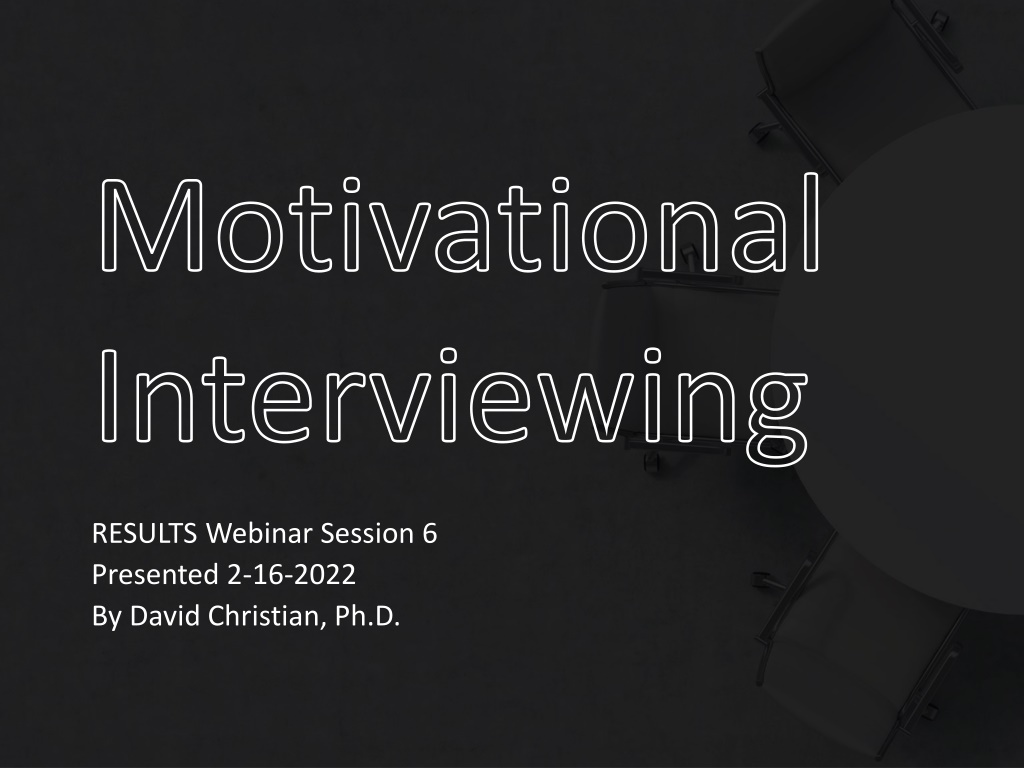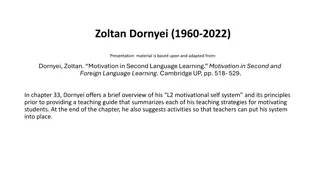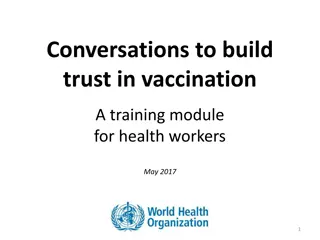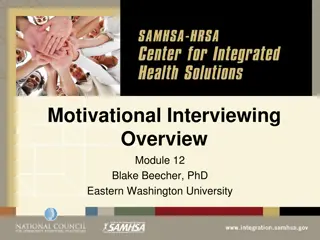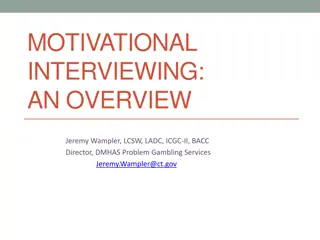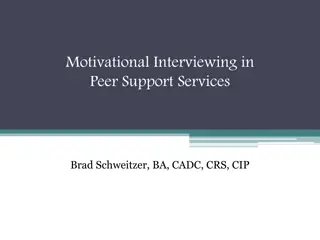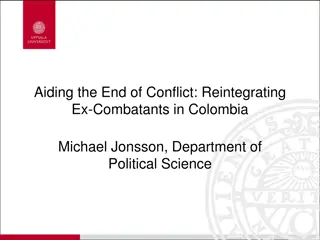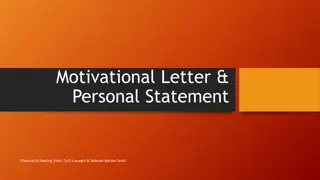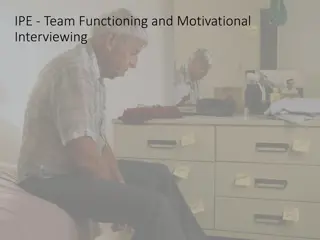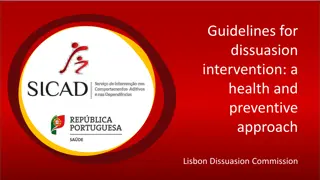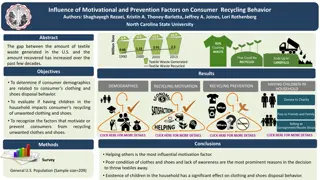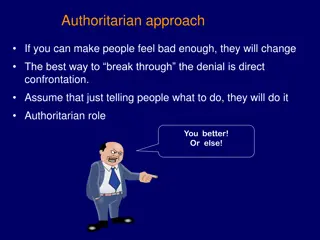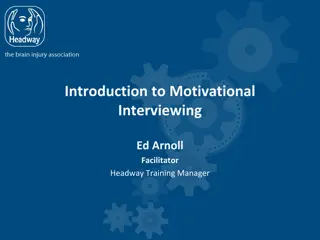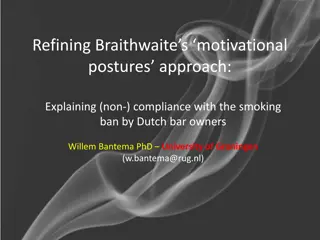Motivational Interviewing
This webinar session presented by David Christian, Ph.D., focuses on applying motivational interviewing techniques to address tough cases. Topics include active resistance, receiving misinformation, coded language, and stages of change. The spirit of MI is captured in PACE - Partnership, Acceptance, Compassion, Evocation. Learn about the four processes, OARS techniques, eliciting change talk, and methods to address resistance effectively.
Download Presentation

Please find below an Image/Link to download the presentation.
The content on the website is provided AS IS for your information and personal use only. It may not be sold, licensed, or shared on other websites without obtaining consent from the author.If you encounter any issues during the download, it is possible that the publisher has removed the file from their server.
You are allowed to download the files provided on this website for personal or commercial use, subject to the condition that they are used lawfully. All files are the property of their respective owners.
The content on the website is provided AS IS for your information and personal use only. It may not be sold, licensed, or shared on other websites without obtaining consent from the author.
E N D
Presentation Transcript
Motivational Interviewing RESULTS Webinar Session 6 Presented 2-16-2022 By David Christian, Ph.D.
Hows Your Practice Going?
Session 6: Applying MI to Your Tough Cases Active resistance from MOC s. Receiving misinformation. Being excluded or ignored. Coded Language (those people, welfare recipients, etc.) In-person incidents of oppression.
Stages of Change 5. Maintenance Consistent, Zealous 4. Action Moving, Engaged, Acting. 3. Preparation Open, Looking, Interested 2. Contemplation Maybe, Ambivalent 1. Precontemplation Angry, In Denial, Defensive
The Spirit of MI: PACE Partnership Acceptance Compassion Evocation
The Four Processes: 1. Engage 2. Focus 3. Evoke 4. Plan
OARS Open Questions Affirmations Reflective Listening Strategic Summaries
Elicit Change Talk: DARN CAT Change talk is self- expressed language that argues for change: Desire Ability Reasons Need Commitment Activation (Willingness) Taking Steps
Resistance Methods 1. Ruler Method: 1-10, how much do you support X? Why not one number lower? 2. Acknowledge any truth in what they are saying, even if it is small. 3. Reflect: Show interest and understanding of their perspective and values. 4. Ask them to explain their view, revealing their own knowledge gaps. 5. Affirm the values underlying their resistance, which you share. 6. Amplified Reflection- encourages them to moderate their view. 7. Two-Handed Reflection- Reflect their objection and on the other hand evoke change talk. 8. Emphasize their autonomy- Of course, you can do as you wish, however, doing X will produce desired outcome Y. 9. Reframe- Look for a positive implication in the problem they ve raised. 10. Solicit their advice- Ask for their suggestions about the issue they raised. 11. Find the win/win- See if there s a way for both your opinion and theirs to coexist without judgment or conflict. 12. Colombo Method- Express your confusion: 1) Reflect their view, 2) the discrepant facts as you know them, 3) ask for their help resolving the confusion.
MI is Like Jazz: Improvisational
Your Cases Brief description Group suggestions Dave s suggestions Discuss/Role Play
